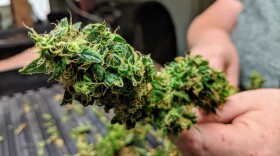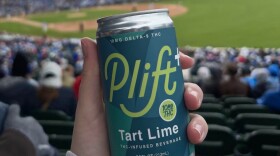-
Some marijuana growers in Missouri “gift” their product in exchange for donations. It's a practice that exists in a legal gray area created by a single clause in Missouri’s Constitution: Adults 21 and older may gift up to 3 ounces of cannabis to another adult “without consideration.”
-
The lawsuits argue that the arrangement creates an uneven playing field, while hemp businesses say they're following federal law.
-
State regulators discovered cultivation licensees were bringing in clones, seeds and tissue cultures from other states, in violation of Missouri’s marijuana tracking regulations.
-
Rescheduling won't allow interstate commerce, federal legalization or an instant federal regulatory takeover. But it will give Missouri marijuana companies some tax relief.
-
Kansas hemp growers and processors say the new, stricter federal law could derail the entire industry. The state has grown to one of the top five hemp producing states in the country.
-
Test results showed that 96% of the products purchased for the research were actually marijuana or synthetic THC — tetrahydrocannabinol, the main ingredient in a cannabis plant that makes users feel high.
-
A new law capping the amount of THC included in hemp products could be “a death blow” to businesses like Plift and Emerald Med CBD that use them to create alternatives to alcohol and health supplements for doctor’s offices
-
Many are grappling with the financial uncertainty of investing their life savings as they work to make their marijuana businesses a success.
-
More than 40,000 Missouri food establishments and stores are estimated to be impacted by federal regulations on hemp products, which were included in the new spending package that reopened the federal government.
-
The executive director of the Kansas Bureau of Investigation recently told state lawmakers that they should outlaw drinks infused with tetrahydrocannabinol, or THC.
-
The Trump administration is considering placing marijuana in the same federal classification as codeine, instead of where it currently is alongside heroin.
-
Retailers in other states have offered steep discounts that threaten market stability, analysts said at the MJ Unpacked cannabis conference in St. Louis.
Play Live Radio
Next Up:
0:00
0:00
Available On Air Stations











